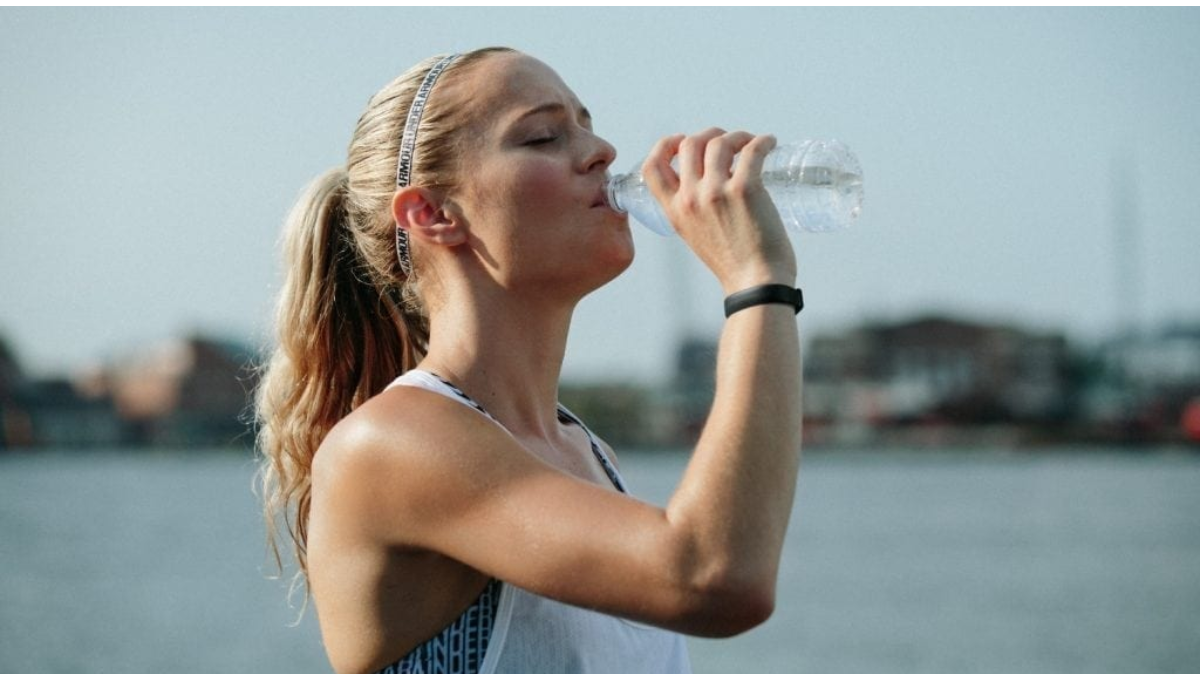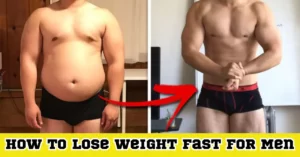When it comes to lose water weight, the length of time depends on the amount of water that has been retained in the body. This excess fluid can take a couple of days to flush out of the body. If you’re wondering how long it takes to lose water weight, there are several methods you can try. Your weight may return to normal in as little as 1-2 days if you follow a healthy diet with Lose Water Weight.
- Exercise reduces Lose Water Weight
- The diet reduces water retention/Lose Water Weight
- Medications that cause water retention to Lose Water Weight
- Read More: How to Help Your Teenager Lose Weight
- Effects of Lifestyle on water retention/Lose Water Weight
- If you are a fashion lover join us here Wears360.com
Exercise reduces Lose Water Weight
Several ways to reduce water retention include drinking more Water, eating smaller meals, and exercising regularly. Walking and jogging for 30 minutes a day are excellent choices to help Lose Water Weight. Exercising on elliptical machines, treadmills, or exercise bikes can help to release water retention. Lakes and swimming pools can also be great places to exercise and relieve water retention symptoms. You can also buy a water pill or two to treat mild cases of fluid retention.
Another cause of water retention is inflammation, a result of overworked muscles. While this effect is temporary, it is a clear indicator that you need to exercise. If you have sore muscles from a new exercise, it is a sign that your body needs more recovery time. However, this is completely normal. When you exercise, your muscles are working hard, so water is retained in them. This causes swelling around the eyes.

Aerobic exercise can help reduce water retention by improving circulation. When blood and oxygen circulate more efficiently throughout your body, fluid is dispersed more easily. Cycling is another good exercise since it works many parts of the body at once. This increases circulation and improves the lungs. Exercise reduces water retention by enhancing overall health. You may even be surprised at how much better you feel after cycling. You can begin cycling today! It only takes 30 minutes to do the same.
Excess sodium is always the first cause of water retention. This is the stuff in pre-packaged foods, microwave meals, and salt. Sodium tends to recall water to the extracellular compartment and inhibits the hormone that regulates body fluids. So, if you’re experiencing water retention, you should start cutting down on the salt in your diet. That way, you can lose water weight. However, exercise can be a great option for people with excessive water retention.
The diet reduces water retention/Lose Water Weight
Eating too much salt or not drinking enough water is one of the main culprits in water retention. You may also notice extra bloating and gas from ingredients like MSG, baking soda, sodium nitrite, and sodium benzoate. To combat water retention, you can cut out all processed foods, limit your sodium intake to two-three grams per day, and season your meals with herbs and spices. Dietitian Keri Glassman offers some simple tips for reducing water retention.
If you notice puffy fingers or ankles, it is likely you’re experiencing water retention. You may also notice a bloated face or ill-fitting rings. A healthy diet is the first step to lose water weight and shedding unwanted pounds. Moreover, a diet rich in fruits and vegetables is the best way to fight water retention. Besides, drinking plenty of water every day and taking a balanced diet can also help you lose water weight.

Apart from consuming whole grains, you should also limit the intake of processed foods and refined carbs. In addition to whole grains, you can also include bananas and dandelion leaf extract in your daily diet. While this can be a quick fix for water retention, it should be followed in a long-term fashion to prevent it from recurring. In addition, you can also consult a healthcare provider for more information about what you can eat to reduce your water retention.
As mentioned before, a lower carbohydrate intake is beneficial for lose water weight. Refined carbohydrates cause water retention. Therefore, replacing them with whole grains and fibers will help to reduce water retention. By replacing refined carbs with high-fiber food, you can drastically reduce your water weight. Additionally, some medicines can cause water retention, such as high blood pressure medications, NSAIDs, antidepressants, and chemotherapy drugs.
Medications that cause water retention to Lose Water Weight
If you have excessive fluid retention, you’ve probably been on certain medications. These include calcium channel blockers, corticosteroids, and nonsteroidal anti-inflammatory drugs. Fluid retention is also linked to chronic venous insufficiency, which results in weakened valves in the veins and water retention. In addition to water retention-causing drugs, your diet should be low in salt. Aim to drink plenty of water and avoid salty foods.
Water weight is often caused by fluctuating hormone levels. This can lead to bloating and puffiness. Some medicines cause water retention, such as some OTC pain relievers. Because they cause the body to retain water, the effects of these medications can be quite severe. But some medicines, like furosemide, are safe to take in most cases. You may need a doctor’s supervision before starting any new medicine.
Read More: How to Help Your Teenager Lose Weight
The most effective way to reduce water retention and eliminate fluid and salt is to cut down on your consumption of common carbs. Caffeine is a natural diuretic, but be sure to limit it. Too much caffeine can cause health issues. Also, remember to avoid water pills that you can purchase over the counter. These pills are not regulated by the FDA, and they may cause harmful side effects. A doctor-prescribed diuretic may be the best option for you.
Some women may experience water retention when taking hormonal birth control medications. While this water weight does not last long, some women find it uncomfortable and stop taking these medicines. They should talk to their ob-gyn about alternative birth control methods. Another common cause of water weight is cortisol, a stress hormone that controls blood sugar levels. The effect of cortisol on water weight has been studied and reported in several studies.
Aside from excessive salt intake, many people experience weight fluctuations as a result of a fluctuating diet. The reason behind this fluctuation is unclear, but a sudden increase in water weight may be a sign of a health problem. As a result, you should consult with your doctor if you experience excessive water weight or notice unusual swelling in your ankles and lower legs.
Effects of Lifestyle on water retention/Lose Water Weight
Water retention, also known as edema, is a common condition in which excess fluid is retained in the body. It is often caused by an unhealthy diet and a sedentary lifestyle. The main symptoms of water retention include swelling of the face and extremities and bloating. The good news is that lifestyle changes can help reduce this problem. Listed below are some tips to help reduce water retention. -Reduce your salt intake.
Use more potassium and magnesium-rich foods. These foods can help decrease the body’s sodium and bloating caused by fluid retention. Potassium also helps relax the blood vessel walls, which lowers blood pressure and reduces water retention. In addition to these, many foods that are rich in potassium and vitamin C are beneficial for fighting water retention. A diet high in these nutrients can help lower water retention.
Eat more potassium-rich foods. The intake of potassium-rich foods is essential for the cellular pumps. People who don’t get enough potassium will release hormones that hold water in the body. These hormones include aldosterone and vasopressin. Studies on the effects of potassium-rich foods on water retention have found that those who have an elevated sodium-to-potassium ratio are 50% more likely to die of cardiovascular disease and heart attacks.
Cut out excess sodium-containing foods. Salt binds with water and traps it in the body. Adding back carbohydrates after restricting them can affect fluid retention. Changing your diet to cut out sodium and other processed foods can also affect the body’s water retention. And, don’t forget to drink plenty of water. Water retention is a common symptom of many illnesses and lifestyle factors. Make sure to consult your doctor for proper diagnosis and treatment.




